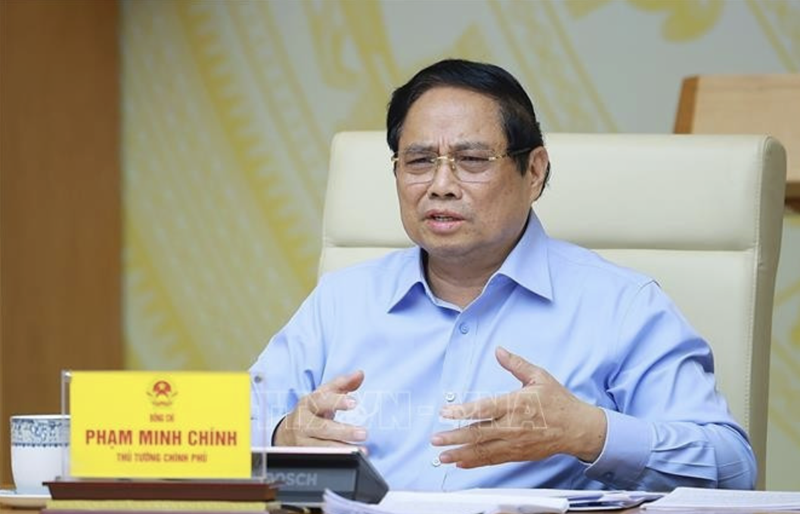The PM requested relevant ministries and agencies to fully absorb sound and practical opinions, review existing legal regulations, and consider amendments and supplements to meet current requirements.
    |
 |
|
Prime Minister Pham Minh Chinh speaks at a conference on removing obstacles in conformity and standardization of products and goods in Hanoi on October 18, 2025. |
He noted that under the renewed management mindset, amended laws have shifted from pre-inspection to risk-based post-inspection, focusing on products with medium and high risk levels. Mandatory measures will only apply to these categories, while products that already meet quality management requirements under specialized laws will be exempt from conformity declaration.
The government leader called for accelerated digital transformation, simplification, and reduction of administrative procedures, with transparent publication on digital platforms. This marks a major reform, reflecting the government’s determination to cut unnecessary procedures, reduce compliance costs and overlapping regulations, and enhance corporate autonomy and responsibility, in line with international practices.
He assigned the Ministry of Science and Technology (MoST) to coordinate with the Ministries of Justice, Agriculture and Environment, and Health, and relevant agencies to carefully review existing legal provisions to ensure consistency and coherence in conformity and standardization.
The MoST was tasked with drafting a decree guiding the implementation of the Law on Standards and Technical Regulations and the Law on Product and Goods Quality. The PM stressed that international standards should be studied, applied, and publicly announced, and product traceability must be regulated in an open and transparent manner.
Relevant ministries and sectors were instructed to urgently review existing national technical standards to adjust, amend, or abolish those no longer suitable. The guiding spirit, he reaffirmed, is to avoid both negligence and excessive rigidity, ensuring public safety and health while streamlining administrative procedures, promoting decentralization, mobilizing social resources, and enhancing socialization.
The PM also required ministries to issue related circulars before the new laws on standards and on product and goods quality take effect on January 1, 2026, to ensure a coherent and feasible system of technical standards.
He stressed the urgent need to accelerate the development of a national database on conformity and standardization and a shared digital platform for the national quality - measurement - standards management system, enabling connectivity and effective state management.
The PM demanded strict handling of violations, particularly in food safety and pharmaceuticals, and disciplinary measures against officials lacking responsibility. He affirmed that the Government remains committed to supporting enterprises, creating an open, stable, and transparent investment and business environment that fosters sustainable national development.
PM Chinh urged associations and the business community to actively contribute feedback on institutional reforms and policy implementation, promptly reflecting challenges so that authorities can refine relevant legal provisions. This, he said, will help ensure that new policies are truly practical and beneficial for businesses and citizens.
At the conference, delegates reviewed legal regulations related to conformity and standardization of products and goods, especially in agriculture and agricultural products. They proposed continuing to remove unnecessary regulations, reduce administrative procedures, clarify decentralization and delegation of authority to avoid overlaps, and apply pre- or post-inspection mechanisms according to product type. They also recommended recognizing results from reputable domestic and international testing and certification organizations.
Source: VNA